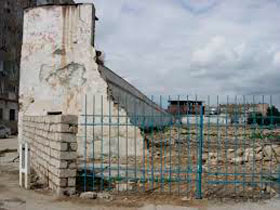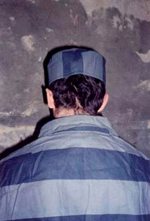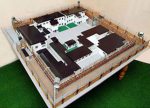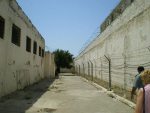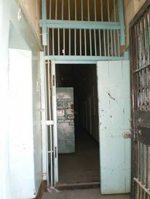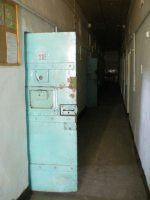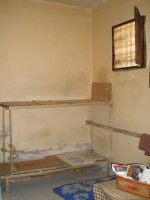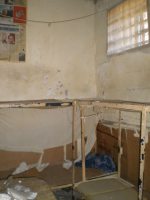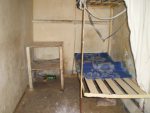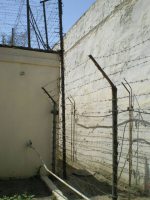Only photos are left from condemned cell in Baku
In Azerbaijan, the death penalty hasn't been used since 1998 , and Bailov prison, where death convicts were kept, was destroyed in July 2009. The building where the convicts were executed can be seen only in photos, as a reminder of barbarism.
These pictures were taken the day before the destruction of the prison and presented by an Azerbaijani human rights defender, Eldar Zeynalov.
Bailov prison was officially called "Investigative isolator No. 1" and was used as a place of detention since 1888. In 1923 corps No. 5 was built, where the condemned cells and the cellar for shooting the convicts were situated.
In the last period of the USSR about twenty people were sentenced to death in Azerbaijan each year, the maximal number was 24.
On 21 October 1994 the death penalty was abolished for women. On 10 February 1998 the death penalty was removed from the Azerbaijani Criminal Code with the reservation that it can be used in exceptional cases , with the adoption of a special law, during the wartime or under the threat of war.
Having ratified the European Convention for the Protection of Human Rights and Fundamental Freedoms in 2002, Azerbaijan refused to ratify Protocol No. 6 to it, which prohibits the use of the death penalty under any circumstances.
In the photos below (made the day before the destruction of the prison in July 2009):
1. Striped uniform of death convicts and dangerous repeated offenders;
2. A model of the Bailov prison from an official website (has some differences from the real prison). The fifth corps is in the right corner.
3. A scheme of the firing basement: 1) condemned cells, 2) sauna, 3) entrance of the basement, 4) the room for the announcement of the death verdicts, 5) the shootings room, 6) vestibule, 7) the car for the transportation of the bodies.
4. The path to corps No. 5. On the left – corps No. 3 (for convicts).
5. The bars separating the cells from the service space. On the right there is a “duty room” for the head of the corps and the guards, on the left – the pantry (cell No. 117), which was sometimes used as a cell. After the abolition of the death penalty and permit of walks it was transfformed into a corridor leading to the yard for walks.
6. The cell was locked by three locks: the lock on the door, the lock on the opening in the door through which the food was passed and an electronic lock which could be opened by the attendant's console. The locks have been removed before the time of the photos.
7. Redone and renovated cell of corps No. 5.
8. The cell was redone into a 4-place one after 2004 (whereas it was prohibited to keep more than two death convicts in once cell together). However, due to the moratorium of 1998 on the death penalty there were 128 convicts per 36 sleeping berths.
9. CellNo. 124 is the smallest in the corps, and used to be a one-man cell. At the moment of the shooting it was almost the only one which preserved its original look since the times when the death penalty was used.
10. In 1994 a tunnel was dug under this thin strip, and ten death convicts managed to escape through it.



